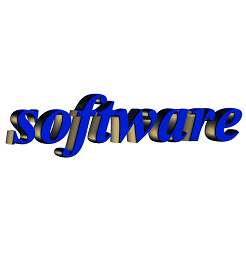There is now a ray of hope for computer and software based patents. The case which is discussed below is the second one post Alice Corp. v. CLS Bank International case.
In Enfish, LLC v. Microsoft Corporation, the U.S. Court of Appeals for the Federal Circuit reversed a California district court’s summary judgment that two software patents were directed to an “abstract idea” without “significantly more” and therefore were not eligible for patent. The facts of the case are stated below.
Enfish owned two patents namely, US6,151,604 and US6,163,775 that described and claimed a logical model for a computer database. A logical model is a model of data for a computer database that explains how the different elements of information are related to each other. Enfish’s patented invention disclosed a logical model that included all data entities in a single table, with column definitions provided by rows in the same table. In short, Enfish’s patent described a table structure that allowed the information that would normally appear in several different tables to be stored in a single table.
In 2012, Enfish sued Microsoft for infringement of these patents. The district court, under the two step analysis of Alice test determined that the claims were directed to an ineligible abstract idea of “storing, organizing, and retrieving memory in a logical table”. The district court found that all claims were invalid under Section 101 of Title 35 of the United States Code, as they were directed to an abstract idea without providing an inventive concept sufficient to transform the claims into a patent-eligible invention.
On appeal, the United States Court of Appeals for the Federal Circuit disagreed with the lower court ruling that the claims were not patent eligible. The court found the claims to be directed to a specific improvement in the functioning of a computer. Further, Enfish explained in its specification the benefits of the claimed invention over conventional databases such as increased flexibility, faster search times and smaller memory requirements. Accordingly, the claims were found to be patent eligible based on the first step of the Alice inquiry and the court concluded that it need not proceed to step two of the Alice inquiry.
The Federal Circuit in Enfish has expanded the scope of patent-eligible matter and provides the much needed clarity with respect to subject matter eligibility. The concept of “abstract idea” is a heated topic in recent days. However, Enfish undoubtedly benefits software patentees and this case is likely have a significant impact on future challenges under Section 101 in courts and in the PTO.
Authored by Anjali Santosh



